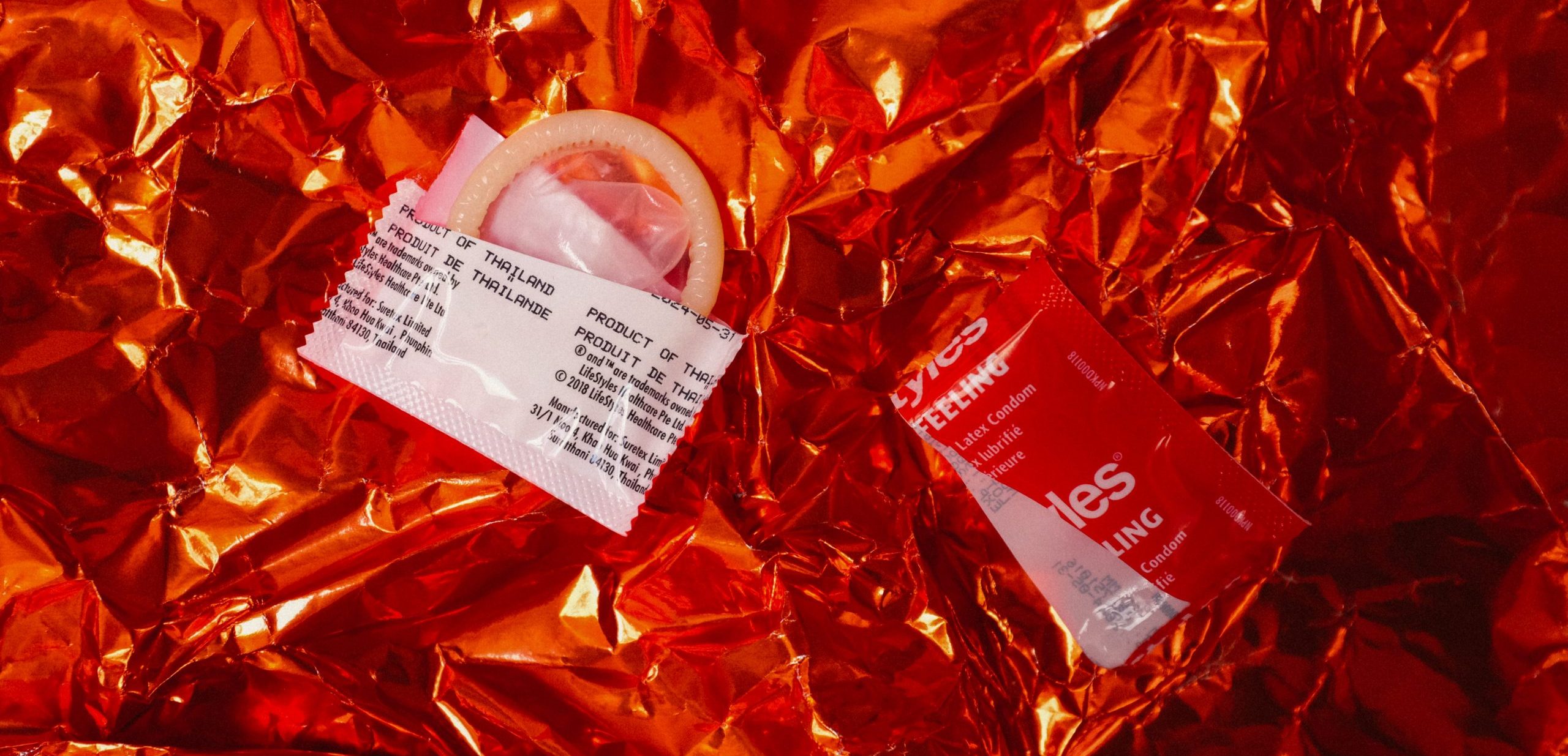- What is HIV?
HIV stands for Human Immunodeficiency Virus, it attacks the body’s immune system and weakens it. The weakening of the immune system makes it hard to fight against diseases and other illnesses. If not treated, an HIV positive person can develop AIDS. But it can be years, approximately 10 years, before an HIV positive person can develop AIDS (if they don’t receive medical treatment).
- Is HIV and AIDS the same thing?
No, HIV and AIDS are not the same thing. If HIV is not treated, a person will develop AIDS.
- What is AIDS?
AIDS stands for Acquired Immune Deficiency Syndrome. HIV is what causes AIDS. You can be HIV-positive and not have AIDS, but you cannot have AIDS if you’re not HIV-positive. AIDS occurs after HIV weakens and destroys your immune system. AIDS is a fatal stage of HIV and it can lead to death.
- Is HIV a death sentence?
No, with proper treatment, an HIV-positive person can live a normal lifespan.
- How can I know if I have HIV?
The only way to know for sure whether you are HIV-positive is to get tested. Usually this is done by testing your blood or by collecting cells through swabbing the insides of your cheeks. Some tests look for antibodies made in response to the virus and other tests look for the virus itself. It takes about 3 to 12 weeks for your immune system to make enough antibodies for them to be detected. Tests that detect antigens for the genetic material of the virus are more accurate (since it takes time for your body to make enough antibodies to be detected). You can choose to take an HIV test at home or at a doctor’s office.
There are symptoms associated with HIV, but some people don’t experience any symptoms or they can confuse them with symptoms of other illnesses. HIV symptoms include flu-like symptoms (coughing, sore throat, fatigue, fever). Other symptoms are: pain while swallowing, abdomen pain, dry coughs, loss of appetite, sweating/night sweats, nausea, vomiting, diarrhea, swelling of the groin, white tongue, mouth ulcers, headaches/migraines, swollen lymph nodes, extreme weight loss, skin rashes, opportunistic infections, pneumonia, oral thrush, or red blotches.
Since HIV symptoms are similar to those of other less severe illnesses, it is best to get tested to confirm whether you are HIV-positive or not.
- Who can get HIV?
HIV can affect anyone. It does not discriminate based on age, race, ethnicity, sexual orientation, sex, or gender. Though, certain groups of people are at a higher risk due to their location, their risk behaviors (drug usage or not using protection during sexual intercourse), or the HIV status of their sexual partner(s).
- How can HIV be transmitted?
Despite many myths, HIV can only be transmitted through blood, pre-seminal fluid, semen, vaginal fluids, rectal fluids, and breast milk. In order for transmission to occur, these fluids must come in contact with damaged tissue or a mucous membrane. Damaged tissue can refer to an open wound. Mucous membranes can be found in the mouth, vagina, penis, and rectum. The exchange of these fluids usually occurs during sexual intercourse or through the sharing of needles.
HIV can also be transmitted if the fluids are directly injected into the blood stream.
- How can HIV not be transmitted?
HIV cannot be transmitted through casual contact, such as: cheek kissing, shaking hands, hugging, sharing utensils, urine, feces, sweat, tears, saliva, or insects.
- Can HIV survive outside the body?
HIV is sensitive to air and light. It cannot survive for long once it is outside a human host (such as when it’s on surfaces). Dried blood can still contain HIV, but it is a small risk for transmission. Once the HIV virus is exposed to air, it becomes inactive and cannot reproduce or become active once again.
- Can I get HIV from vaginal intercourse?
Yes, HIV can be transmitted through vaginal intercourse. There is mucous membrane in the vagina and cervix. A person can get HIV through vaginal fluids, pre-cum, or semen when engaging in vaginal intercourse. The virus can enter through the urethra, sores/cuts/scratches on the penis, foreskin (if not circumcised), or by coming into contact with mucous membranes lining the vagina and the cervix.
- Can I get HIV from oral sex?
The short answer is “yes, it is possible”. But, it is extremely rare for an HIV-negative person to get HIV from an HIV-positive person through oral sex. Transmission is possible if sores are present in the mouth or on the penis or vagina, open wounds in the mouth or bleeding gums, oral sex that leads to contact with menstrual blood, and the presence of other STDs.
You can lower the risk of HIV transmission during oral sex by wearing a condom and by avoiding ejaculation in the mouth. You can further lower the risk if the HIV-negative partner is taking PrEP and the HIV-positive person is taking ART.
- Can I get HIV if I swallow semen?
Like with oral sex, there is a a low risk with HIV transmission when semen gets in the mouth. It’s not really a matter of whether you swallow or spit. It’s a matter of whether the semen comes into contact with any sores, ulcers, open wound (bleeding gums), or if you have any infection in your mouth or throat. Having a “healthy” mouth will result in no risk or very low risk of transmission. It is best to avoid brushing teeth right before performing oral sex, since vigorous brushing can lead to bleeding gums.
- Can I get HIV from anal intercourse?
Yes, anal intercourse poses a high risk of HIV transmission. The person getting penetrated has a higher risk because the lining of the rectum is thin and it can tear, allowing the HIV virus to enter the body. The person penetrating also has a high risk since the virus can enter through the urethra (the opening tip of the penis) or through the foreskin if not circumcised, and through any cuts or sores on the penis.
- If I am the one penetrating during sexual intercourse, can I get HIV?
Yes, all partners are at risk of contracting HIV if precautions are not taken.
- Can I still get HIV if I use a condom?
Condoms lower your risk by 80% when used correctly and consistently. Other measures should be taken to further lower risk of transmission. These measures include using lubricants to lower the risk of condoms tearing, taking PrEP if you are HIV-negative but your partner is not, and taking ART if you are HIV-positive.
- Can I still get HIV if I am a woman who only has sexual intercourse with other women?
Not many cases have been reported for female-female transmission, but it is possible since vaginal fluids and menstruated blood contain the virus.
- Can I get HIV by touching, cheek kissing, hugging, shaking hands, using the same utensils, or using the same toilet as someone who is HIV-positive?
HIV cannot be transmitted by touching, cheek kissing, hugging, shaking hands, using the same utensils, or using the same toilet as someone who is HIV-positive. Certain fluids must be exchanged and they must make contact with damaged tissue or a mucous membrane. These fluids are blood, pre-seminal fluid, semen, vaginal fluids, rectal fluids, and breast milk.
- Can I get HIV from injecting drugs?
There is a high risk of HIV transmission if you use needles after they have been used by an HIV-positive person. You can lower your risk by only using new-sterile needles and not sharing them with anyone.
- Can I get HIV from other drugs that don’t require injection?
No, you cannot contact HIV by using drugs that don’t require injecting.
- Can I get HIV if I get a tattoo or a piercing?
HIV transmission can occur if the equipment is not new or sterile, or if the ink is being shared. But, if the person is properly licensed then there is a very low risk of HIV transmission. Licensed artists are more likely to follow proper procedure than unlicensed artists.
- Can I get HIV through saliva?
No, saliva does not contain the HIV virus.
- Can I get HIV through insects?
No, insects cannot transmit HIV.
- Can I get HIV through food consumption if the food was handled by an HIV-positive person?
No, even if the food contained blood or fluid with the HIV virus, you cannot get HIV this way. The heat from cooking, exposure to air, and stomach acids would inactivate the virus.
- Are certain groups or people more likely to get HIV?
HIV can affect anyone. It does not discriminate based on age, race, ethnicity, sexual orientation, sex, or gender. Though, certain groups of people are at a higher risk due to their location, their risk behaviors (drug usage or not using protection during sexual intercourse), or the HIV status of their sexual partner(s).
- What is HIV viral load?
Viral load measures the quantity of the virus per milliliter of blood. If your HIV viral load or if your partner’s HIV viral load in undetectable, then HIV cannot be transmitted (even with unprotected sexual intercourse).
- Can HIV be transmitted by someone whose viral load is undetectable?
No, if the HIV viral load is undetectable, then the virus cannot be transmitted through protected or unprotected sexual intercourse.
- Can I get another form of HIV if I am already HIV-positive?
There are over 60 strains of HIV worldwide. If you are already HIV-positive with one strain, you can still get a second strain of HIV. This is called “HIV superinfection” and it can be hard to treat, but it is very rare for it to not be treatable with medication.
- Am I more likely to get HIV if I have another STD?
Yes, you are three times more likely to get HIV if you have another STD while having sex with someone who is HIV-positive. This happens if the STD causes skin irritation or sores, the HIV virus can enter the body through the sores or broken skin. Even if the STD does not cause skin irritation or sores, it can still cause inflammation and thus providing more cell targets for the virus.
- What medication is taken for HIV?
There is no known cure for HIV, it is managed by ART, antiretroviral therapy. It is a combination of HIV medications that works by stopping the virus from replicating. Some people may only have to take two medications, while others may have to take more than two. Inhibitors are also taken to stop the virus from infecting T-cells.
There is also PrEP, which stands for Pre-Exposure Prophylaxis. This is medication taken by people who are HIV-negative but might be at risk of HIV transmission (drug injections or sexual intercourse with an HIV-positive partner).
- Is there a cure for HIV?
No, there is no definitive cure for HIV as of 2020.
- Why is there no cure for HIV?
HIV infects T-cells, these are the cells that are responsible for attacking an infection. The virus then writes a copy of itself and is able to use the T-cells to make more copies. It also destroys the T-cells. Most T-cells die once they are infected, but some stay inactive and the virus lies dormant in them. At some point, they become active and the virus is then able to kill them. Even if the medication could kill all of the active HIV virus, at some point the inactive cells will become active and thus the virus will be replicated.
- Is it possible to be immune to HIV?
A very small percentage of the population is partially or completely immune to HIV. This is due to a mutation of the co-receptor for HIV (CCR5).
- I heard that someone was cured of HIV, is this true?
Yes, two patients were “cured”. Some people are still not sure if they were completely cured due to a possible dormant virus becoming active in the future. The patients were cured following a bone marrow transplant.
“HIV Basics.” HIV, Centers for Disease Control and Prevention, https://www.cdc.gov/hiv/basics/index.html.
Images by Dainis Graveris, Pawel Czerwinski, Hush Naidoo, Charles Deluvio, and The Tonik from Unslpash.







